Collection
Causal Inference and Observational Data
- Submission status
- Closed
Causal inference is an essential area of study with major importance across disciplines. Allowing researchers to identify the factors leading to specific outcomes, causal inference in the field of medical research, can potentially inform medical practice and health policies, in turn improving public health outcomes. For instance, it can provide insights into the underlying mechanisms of disease and illness, help evaluate the effectiveness of public health policies and interventions, and address ethical considerations in research.
Observational studies are common sources of data for causal inference. Causal inference can be made using statistical models that separate causal effects from spurious correlations. Because observational studies are subject to bias and confounding, careful study design and adequate statistical methods are needed to ensure that the drawn conclusions are valid.
This collection welcomes articles that address methodological challenges in using observational data to draw causal conclusions, with a focus on applications in medical and healthcare settings.
Articles (11 in this collection)
-
-
Application of causal inference methods in individual-participant data meta-analyses in medicine: addressing data handling and reporting gaps with new proposed reporting guidelines
Authors (first, second and last of 14)
- Heather Hufstedler
- Nicole Mauer
- Till Bärnighausen
- Content type: Research
- Open Access
- Published: 19 April 2024
- Article: 91
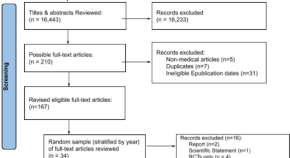
-
Assessment of the E-value in the presence of bias amplification: a simulation study
Authors
- Eric Barrette
- Lucas Higuera
- Kael Wherry
- Content type: Research
- Open Access
- Published: 28 March 2024
- Article: 79
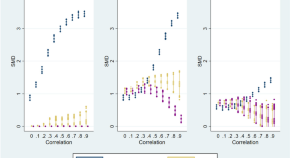
-
An empirical evaluation of approximate and exact regression-based causal mediation approaches for a binary outcome and a continuous or a binary mediator for case-control study designs
Authors (first, second and last of 4)
- Miguel Caubet
- Kevin L’Espérance
- Geneviève Lefebvre
- Content type: Research
- Open Access
- Published: 20 March 2024
- Article: 72
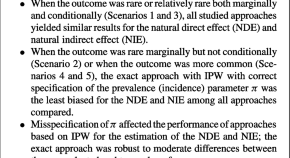
-
Assessing the properties of patient-specific treatment effect estimates from causal forest algorithms under essential heterogeneity
Authors (first, second and last of 5)
- John M. Brooks
- Cole G. Chapman
- Neset Hikmet
- Content type: Research
- Open Access
- Published: 13 March 2024
- Article: 66
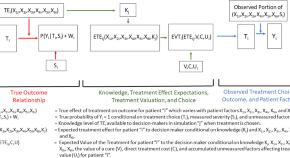
-
Revising model for end-stage liver disease from calendar-time cross-sections with correction for selection bias
Authors (first, second and last of 5)
- H. C. de Ferrante
- M. van Rosmalen
- F. C. R. Spieksma
- Content type: Research
- Open Access
- Published: 28 February 2024
- Article: 51
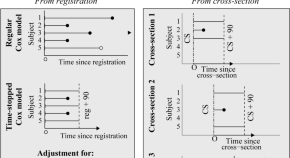
-
A data-adaptive method for investigating effect heterogeneity with high-dimensional covariates in Mendelian randomization
Authors
- Haodong Tian
- Brian D. M. Tom
- Stephen Burgess
- Content type: Research
- Open Access
- Published: 10 February 2024
- Article: 34
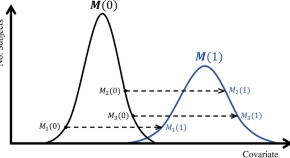
-
Federated causal inference based on real-world observational data sources: application to a SARS-CoV-2 vaccine effectiveness assessment
Authors (first, second and last of 12)
- Marjan Meurisse
- Francisco Estupiñán-Romero
- for the BeYond-COVID project
- Content type: Research
- Open Access
- Published: 23 October 2023
- Article: 248

-
Covariate balance-related propensity score weighting in estimating overall hazard ratio with distributed survival data
Authors (first, second and last of 5)
- Chen Huang
- Kecheng Wei
- Guoyou Qin
- Content type: Research
- Open Access
- Published: 13 October 2023
- Article: 233
-
Causal inference and observational data
Authors (first, second and last of 4)
- Ivan Olier
- Yiqiang Zhan
- Victor Volovici
- Content type: Editorial
- Open Access
- Published: 11 October 2023
- Article: 227
-
An improved multiply robust estimator for the average treatment effect
Authors (first, second and last of 5)
- Ce Wang
- Kecheng Wei
- Guoyou Qin
- Content type: Research
- Open Access
- Published: 11 October 2023
- Article: 231

